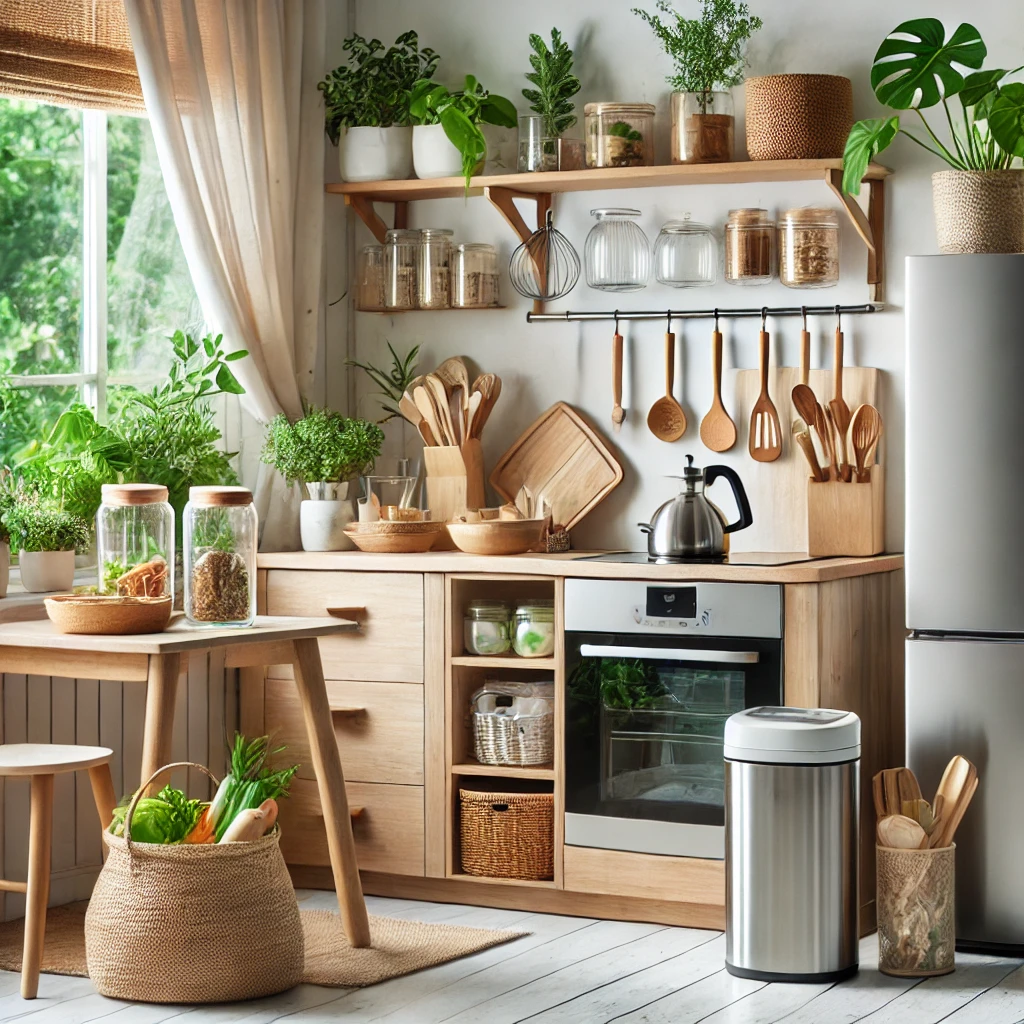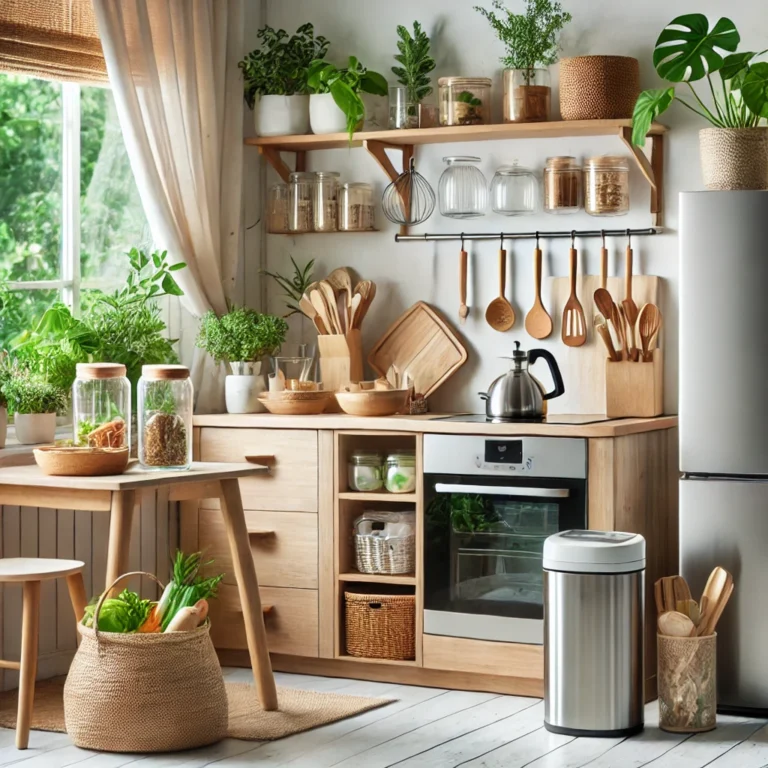Physical Address
304 North Cardinal St.
Dorchester Center, MA 02124
Physical Address
304 North Cardinal St.
Dorchester Center, MA 02124


Are you looking to make your kitchen more eco-friendly? It’s a great place to start your sustainability journey! Swapping a few everyday items with greener alternatives not only reduces waste but also supports healthier habits. Let’s dive into the essential sustainable kitchen products that can help you create a green, functional kitchen space that works for you and the planet.
Switching to eco-friendly kitchen products isn’t just about reducing plastic; it’s a lifestyle choice that contributes to a more sustainable home. Kitchens are one of the biggest sources of household waste, and even small adjustments here can significantly reduce your environmental footprint. Plus, many green kitchen essentials are designed to be durable, so they last longer and save you money over time.
According to the EPA, reducing household waste through reusable products can save tons of waste from landfills each year. By incorporating a few of these essentials into your kitchen, you’re taking meaningful steps towards a sustainable lifestyle.
Ready to make your kitchen more sustainable? Here’s a list of essential items that will help you reduce waste, lower your energy consumption, and embrace an eco-friendly lifestyle.
Plastic food wraps and single-use bags can pile up quickly. Instead, opt for reusable storage solutions like beeswax wraps, glass containers, and silicone bags. These are versatile, easy to clean, and ideal for storing leftovers and packing lunches.
A family in Canada found that switching to reusable wraps and containers cut down on their plastic use by over 50%, while keeping their food fresher for longer. Beeswax wraps and glass containers are durable, and many come in different sizes to fit your needs.
Learn more about reducing plastic waste and how it benefits the planet on Earth Day’s website.
Non-stick cookware often contains harmful chemicals that aren’t great for the environment or your health. Choose cookware made from materials like cast iron, stainless steel, or ceramic. Bamboo utensils are another excellent alternative as they are biodegradable and highly durable.
A chef in Japan made the switch to ceramic cookware for a healthier and more sustainable cooking experience. Not only did she reduce her exposure to chemicals, but she also noticed her pans lasted much longer, reducing the need to replace them.
Most kitchen cleaning supplies, such as sponges and dishcloths, are made from synthetic materials that don’t break down easily. Instead, look for compostable sponges, bamboo dishcloths, and biodegradable scrubbers. Natural cleaners made from vinegar or lemon are also great for cutting through grease without the need for harsh chemicals.
Swapping to compostable cleaning products has helped a family in Sweden reduce waste, as they can simply compost these items when they’re worn out.
Discover compostable alternatives on Green Matters to make your cleaning routine greener.
Investing in energy-efficient appliances is a great way to reduce your kitchen’s environmental impact. Look for refrigerators, dishwashers, and ovens with high energy ratings, as they consume less electricity and often last longer. Many regions even offer rebates or incentives for purchasing energy-efficient models.
In Australia, a household swapped their old appliances for energy-efficient models, cutting their electricity bill by 20% while helping the planet.
Reducing food waste is a big part of a sustainable kitchen. Composting food scraps and planning meals are two simple ways to cut down on waste. Consider keeping a small compost bin on your countertop for fruit peels, coffee grounds, and vegetable scraps, which can later be used to enrich your garden soil.
In the UK, a couple started meal planning and using a compost bin, which helped them save around $30 per month on groceries and turn food waste into something useful.
Learn about food waste and practical solutions from the Food Waste Movie, an educational resource on the impact of food waste globally.
Laura, a teacher from Brazil, decided to make her kitchen greener by switching to glass containers, compostable sponges, and an energy-efficient refrigerator. Over six months, she saw a notable reduction in her household waste and an improvement in her energy bills. She found that even these small changes brought her family closer to a sustainable lifestyle and inspired friends to do the same.
Are you ready to try some of these eco-friendly kitchen essentials? Remember, even small changes can add up to a big difference over time. Whether you’re switching to reusable storage or investing in energy-efficient appliances, these choices help make your kitchen greener and more sustainable.
What’s your favorite green kitchen tip? Share it with us, and let’s keep inspiring each other to make a positive impact on our homes and the planet!